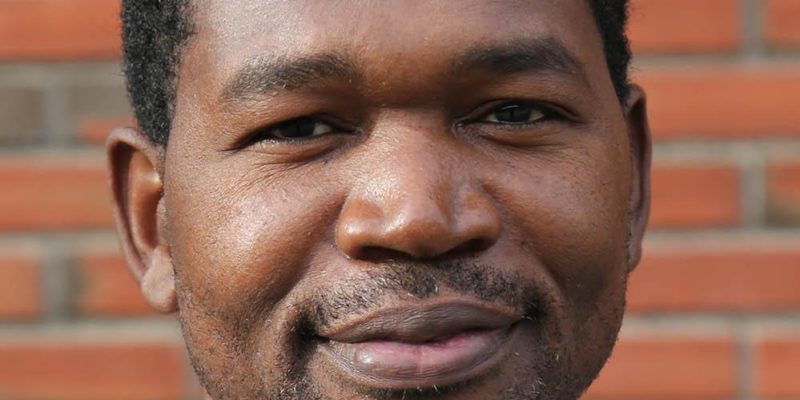African Knowledges of Climate Change Adaptation: Interview with Dr Michael Chasukwa

In 2021 Dr Michael Chasukwa was awarded a fellowship in the LUCAS/LAHRI Virtual Research Fellowship Scheme about African Knowledges for Global Challenges. On completion of his Fellowship we interviewed Michael about his research on ‘African Knowledges of Climate Change Adaptation – A critical examination of power play between international and local actors in Climate Change Policy Making and Implementation’.
Please briefly introduce yourself
Michael Chasukwa holds a PhD (Development Studies) from the University of Leeds, and a MA (Political Science) and BA (Public Administration) from the University of Malawi. His research and teaching interests include development cooperation, political economy of development, institutions, public policy, local governance and agricultural policies as they relate to land, youth and development. He is a trained social scientist with knowledge and skills in qualitative and qualitative social science research. Dr Michael Chasukwa was a member of the Tilitonse Core Advisory Group that works on the political economy of interventions being implemented by partners of Tilitonse Foundation. Dr Michael Chasukwa is an Associate Professor at the University of Malawi and Head of the Department of Political and Administrative Studies, University of Malawi. He has published in both local and international peer-reviewed journals including International Journal of Public Administration, Journal of Peasant Studies, Agrarian South: the journal of Political Economy, Insights on Africa, Journal of Public Affairs, Journal of Development Effectiveness, Africa Review, and Journal of Asian and African Studies.
What project have you worked on during your fellowship period?
Under the Fellowship, I have been working on a project titled: “African Knowledges of Climate Change Adaptation – A critical examination of power play between international and local actors in Climate Change Policy Making and Implementation”. I examined the multifaceted power struggles among several players involved in policy making and implementation process in Malawi. Of interest was the climate change sector focusing on both domestic and international actors. My mentor was Dr Emma-Louise Anderson from the School of International Relations and Co-Director of the Centre for Development Studies at the University of Leeds.
What are the findings of your project so far?
So far, the project has established several interesting findings. I would like to highlight two key findings:
- Institutional design for climate change is informed by the understanding of climate change. The understanding of climate change has evolved over time hence the institutional design has also been changing. When climate change is understood as an environmental issue, government organisations that have mandate on environmental matters are in control of climate change narrative and policies. When the thinking changes that climate change is an economic development matter, attention changes to government organisations that are responsible for handling economic development planning. These changes bring power struggles among actors as new conceptualization entails loss of power and resources. By virtue of climate change being a matter that needs a multi-faceted approach in terms of programming, several actors are involved in policy making and implementation progress. The policy processes get complicated because of the multiple competing narratives.
- Civic society organisations are active in the climate change sector. Within climate change sector, there are ‘networks within networks’ of civil society organisations that do influence the policy processes. ‘Networks within networks’ reflects alignment of CSOs to the positions of development partners that fund their activities. Development partners do not have a common position on programming of climate change activities and general out of climate change policy. Whilst it is expected that in the policy universe there will be competing narratives, demands and interests, the concern is on weak capacity for interest aggregation among actors to achieve effective policy lobbying and networking.
How does the project speak to the overall theme of “African knowledges for global challenges”?
The project speaks well to the overall theme of the African knowledges for global challenges. The findings emphasise that interventions aimed at mitigating effects of climate change need to put into consideration the context in which activities will be implemented. The informal power overlaps with formal power and, some cases, informal power dominates the formal power hence institutional design has to be designed with this in mind. In African setup, informal power is so strong such that agenda setting activities will have to bring into picture how formal power is interfacing with informal power if effective polities are going to be formulated.
Is there anything you would like to add?
The Fellowship was an excellent opportunity to undertake research in a collaborative matter. I had access to literature from the libraries at the University of Leeds because of the electronic platforms. The academic interaction with scholars at the University of Leeds was great such that I participated in a Webinar on climate change organised by the Centre for Global Development and the Leeds University Centre for African Studies. The webinar was one of the flagship activities for University of Leeds regarding its policy awareness and advocacy contribution to COP26. The fellowship is a good initiative and designed well because it is multidisciplinary. The fellowship that should be sustained to allow more early career academics conduct research to contribute to various discussions on Africa from multiple perspectives.
